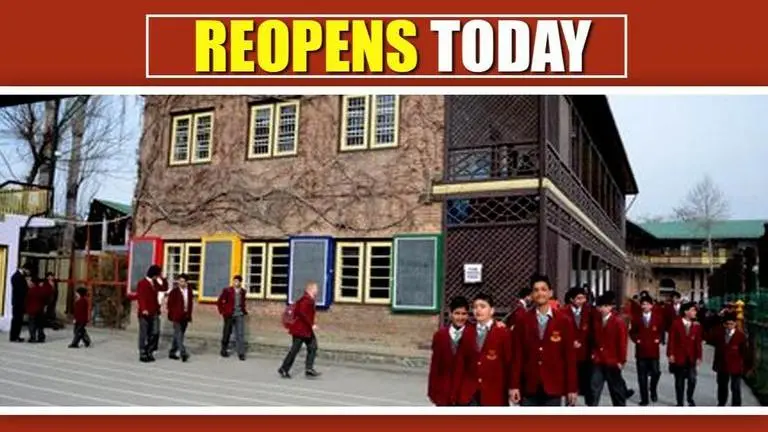Updated 11 November 2019 at 12:11 IST
Jammu: Educational institutes reopen after restrictions were lifted
All the precautionary restrictions have been lifted in Jammu and all the educational institutes have been re-opened from November 11, Monday.
- India News
- 2 min read

All the precautionary restrictions have been lifted in Jammu and all the educational institutes have been re-opened from Monday, November 11, informed the Divisional Commissioner of the Jammu district. Earlier, all schools and colleges were declared to remain shut on Saturday in the view of the Supreme Court's final Ayodhya verdict.
Precautionary restrictions
In the view of the Ayodhya verdict and to maintain peace and harmony, several precautionary restrictions were taken on Saturday in different states. Apart from educational institutes being shut, the Jammu and Kashmir administration had also imposed Section 144 till midnight and school examinations scheduled for Saturday were postponed. Along with it, schools, colleges and other educational institutions were also closed in Madhya Pradesh, Uttar Pradesh and Karnataka.
Internet services suspended
In the view of the Supreme Court's verdict, all the internet services were suspended in various states on Saturday. According to reports, the internet services were scheduled to be suspended for 24 hours in Jaipur from 10 am on Saturday. However, it was extended until Monday. This includes the 2G, 3G, 4G data internet services and a suspension of Whatsapp, Facebook, Twitter and all other social media by internet service providers except voice call of landlines and mobile phone services.
Advertisement
Supreme Court's final Ayodhya verdict
The Supreme Court in its unanimous judgment awarded the disputed land to the Hindu parties for the construction of a temple. The SC directed the Centre to come up with a scheme within three months to set up a trust which will hand over the outer courtyard and inner courtyard of the site for construction of a temple. Apart from this, the SC stated that an alternate land of 5 acres is to be allotted to Muslims for the liberty of constructing a mosque, either by the Centre or the state, in a suitable and prominent place in Ayodhya. CJI Ranjan Gogoi, while delivering the unanimous judgment, dismissed the claims of the Sunni Central Waqf Board and the Nirmohi Akhara. He also termed that the three-way division of the disputed land by the Allahabad HC in its 2010 verdict is "legally unsustainable".
Advertisement
(WITH ANI INPUTS)
Published By : Manjiri Chitre
Published On: 11 November 2019 at 09:51 IST
